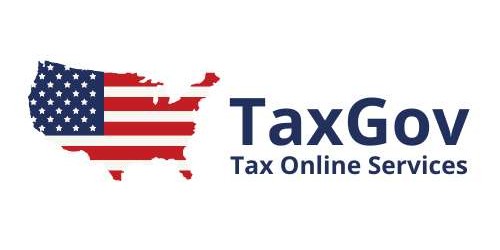Understanding ITIN for Norwegian Citizens
Understanding ITIN for Norwegian Citizens is crucial for navigating tax obligations in the United States. An Individual Taxpayer Identification Number (ITIN) is used by those who are required to have a U.S. taxpayer identification number but are not eligible for a Social Security Number (SSN). For Norwegian citizens living in the U.S. or having income from U.S. sources, obtaining an ITIN can simplify tax filing and compliance. The ITIN is issued by the Internal Revenue Service (IRS) and can be used to file federal tax returns. It should be noted that an ITIN does not authorize work or provide eligibility for Social Security benefits or the Earned Income Tax Credit. Understanding the need and use of an ITIN helps Norwegian citizens manage their financial obligations while retaining compliance with U.S. tax laws.
Steps to Apply for an ITIN
Steps to Apply for an ITIN are systematic and require careful adherence to IRS guidelines. Norwegian citizens must start by completing Form W-7, Application for IRS Individual Taxpayer Identification Number. This form can be submitted alongside a federal income tax return, except in specific instances where an ITIN might be required prior to filing. Applicants must provide supporting documentation, such as a valid passport or other national identification, to prove identity and foreign status. Applications may be submitted in person or by mail to the IRS. It’s important for applicants to ensure that all documentation is accurate and complete, as any discrepancies can lead to delays in processing. By following the correct steps, you can expedite the application process and avoid potential issues with tax filings.
Need help getting your ITIN?
We can help you apply for your ITIN quickly and easily. Let our team handle the process for you.
Common Challenges Faced By Applicants
Common Challenges Faced By Applicants can include document errors, misunderstanding IRS requirements, and navigating tax implications. Norwegian citizens may find the process daunting due to differences in tax systems between Norway and the United States. One primary challenge is ensuring all forms and supporting documents meet IRS standards. Any mistakes can result in application rejections or processing delays. Additionally, understanding which documents establish identity and residency correctly is critical. Consulting with a tax professional or using a Certified Acceptance Agent (CAA) can help mitigate these issues. Preparing for these challenges in advance can make the ITIN application process smoother and less stressful.
Using a Certified Acceptance Agent
Using a Certified Acceptance Agent can streamline the ITIN application process for Norwegian citizens. Certified Acceptance Agents (CAAs) are authorized by the IRS to facilitate ITIN applications by verifying documents and assisting with form completion. This can be particularly useful for those unfamiliar with U.S. tax regulations or complex documentation requirements. CAAs help ensure that all information provided is accurate, reducing the likelihood of mistakes that can lead to delays. Furthermore, agents may also afford flexibility by offering services internationally, assisting citizens applying from Norway or other locations. Leveraging a CAA can enhance the efficiency of obtaining an ITIN while offering peace of mind.
Benefits of Holding an ITIN
Benefits of Holding an ITIN extend beyond fulfilling tax requirements. For Norwegian citizens with U.S. tax filings, an ITIN enables filing tax returns, reclaiming tax treaty benefits, and avoiding unnecessary deductions or penalties. It simplifies engagement with U.S. financial institutions, such as banks, which may require a taxpayer identification number to open accounts or obtain mortgages. Additionally, maintaining compliance with U.S. tax regulations through an ITIN can prevent legal complications and monetary fines. While not a replacement for a Social Security Number (SSN), an ITIN serves as an effective tool for handling financial transactions in the United States.
Addressing Tax Obligations as a Norwegian
Addressing Tax Obligations as a Norwegian involves understanding both U.S. and Norwegian tax responsibilities. Reporting income in both countries can complicate financial management, particularly when addressing which incomes are taxable under which jurisdiction. For Norwegian citizens with U.S. interests, understanding the application of tax treaties can help avoid double taxation and inform decision-making regarding U.S. tax requirements. It is advisable to consult with tax professionals who understand both U.S. and Norwegian tax systems to navigate these obligations effectively. Managing tax responsibilities accurately ensures compliance with legal requirements in both countries and helps Norwegian citizens optimize their tax situation.
Renewing or Updating Your ITIN
Renewing or Updating Your ITIN is essential to remain compliant with IRS rules. ITINs that have not been used for three consecutive tax years or were issued before 2013 and have middle digits 88 (e.g., 9XX-88-XXXX) need renewal. Renewing involves submitting Form W-7 along with the required documentation, similar to the initial application process. Keeping your ITIN current avoids complications when filing taxes and ensures that the IRS recognizes the number for legitimate use. For those with outdated or expiring ITINs, addressing renewal before the tax season begins is crucial for uninterrupted tax processing and avoiding potential penalties from the IRS.
Need help getting your ITIN?
We can help you apply for your ITIN quickly and easily. Let our team handle the process for you.
Making Use of Tax Treaties
Making Use of Tax Treaties can significantly benefit Norwegian citizens dealing with U.S. tax obligations. The U.S.-Norway tax treaty aims to mitigate double taxation and enhance economic cooperation between the two nations. By understanding the provisions of this treaty, Norwegian taxpayers can identify exemptions and credits applicable to their situation. Often, these treaties can protect income from being taxed by both jurisdictions, thereby reducing the financial burden of international tax liabilities. Engaging with a tax expert familiar with international treaties can maximize advantages, ensure proper reporting compliance, and support favorable tax positioning for individuals engaged in cross-border activities.

